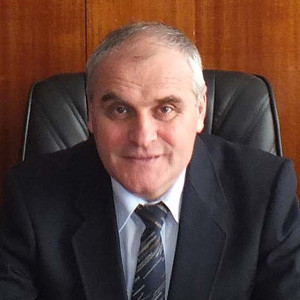Representatives of science and research centres on three continents are discussing, in Bourgas, solutions to environmental problems in different spheres. One of the items on the agenda of the international conference “Ecological engineering and environmental protection” is connected with the biodegradability of potential waste, generated by long term space missions.
Did you know that the astronauts from the international space station generate several tons of waste every year? For the time being they simply eject the waste where it burns in the atmosphere. With longer space flights in future – to the Moon or Mars, as is the ambition of the human race – that would be impossible, commented Professor Viacheslav Ilyin from the Moscow Institute of Medicobiological Problems and Prof. Hristo Naydenski, Director of the Bulgarian Academy of Sciences (BAS) Institute of Microbiology. The two scientists took part in the “Ecological engineering and environmental protection” international conference with a youth session.
 “There will be a ban on ejecting this kind of waste and cellulose into outer space – negotiations on such a ban are currently underway,” Prof. Hristo Naydenski says. “And then all of this waste will have to be processed onboard the spacecraft and serve as a source of water, carbon dioxide, of energy to be used for the flight itself. At the moment we, from the Moscow Institute of Medicobiological Problems and from the BAS Institute of Microbiology are working, together, on anaerobic biodegradability methods for this waste with the help of microorganisms. This has been done experimentally here, on Earth, what we have to do now is optimize these methods in the environment of outer space.”
“There will be a ban on ejecting this kind of waste and cellulose into outer space – negotiations on such a ban are currently underway,” Prof. Hristo Naydenski says. “And then all of this waste will have to be processed onboard the spacecraft and serve as a source of water, carbon dioxide, of energy to be used for the flight itself. At the moment we, from the Moscow Institute of Medicobiological Problems and from the BAS Institute of Microbiology are working, together, on anaerobic biodegradability methods for this waste with the help of microorganisms. This has been done experimentally here, on Earth, what we have to do now is optimize these methods in the environment of outer space.”
Disposal of this waste is very important to astronauts, but also to the people here, on Earth. And the reason is that it contains potentially pathogenic, i.e. dangerous microorganisms which could mutate additionally in outer space.
The spread of antibiotic resistance in the soil and in farms is another problem the scientists have to address.
“That is a very pressing issue as in the next ten years we are expecting to see a boom in antibiotic resistance and medicine will have to face a serious problem,” Prof. Hristo Naydenski explains. “There are different kinds of solutions. The authors presented separate recommendations connected with limiting the use of antibiotics, applying other categories of measures that would contribute to a betterment of the health of humans and animals while gradually restricting this phenomenon. Our colleagues from France made an interesting presentation connected with the optimization of a number of biotechnological processes. How, if we change some parameters like temperature of the environment, humidity etc., in a process we can predict the end result of these biotechnologies by applying a mathematical model.”
A separate session during the conference in Bourgas will discuss natural calamities in Bulgarian forests and the forest fires during the 2009-2018 period. Up to date satellite imagery will be used to evaluate and monitor the current state of plant life, the water index and other indicators in protected zones.
The scientific forum in Bourgas brought together established names as well as young researchers from France, Italy, Belgium, the Netherlands, Portugal, Russia, Ukraine, Latvia, Cyprus, Georgie, Algeria and Bulgaria.
A university in Bourgas – the Prof. Dr. Assen Zlatarov – and the BAS Institute of Microbiology are co-organizers of the event which continues until 7 June.
There is a Directive according to which third-country nationals who have been granted humanitarian or refugee status in Bulgaria (or in the EU territory) can be employed without any other permits. Only with this status document obtained from the..
"You reap what you sow", says a proverb. And spring is the time for sowing. Traditionally, at this time of the year Sevlievo hosts a long-awaited event associated with the agricultural lifestyle of Bulgarians.This weekend, the town will host the 10th..
On April 27, the residents of Nova Zagora (Southeastern Bulgaria) take to the streets to praise their most popular spice, which has become a tourist symbol of the town. The Samardala Festival is held for the second consecutive year and is organized..
As of 31 December 2023, Bulgaria's population is 6 445 481, or 1.4% of the EU population, according to the latest data from the National Statistical..
There is a Directive according to which third-country nationals who have been granted humanitarian or refugee status in Bulgaria (or in the EU..
75 805 applications for obtaining Bulgarian citizenship were submitted from 1 January 2020 to 24 November 2023. These figures were announced in..

+359 2 9336 661
